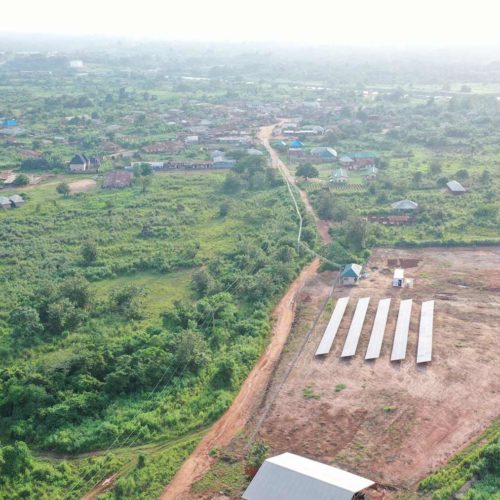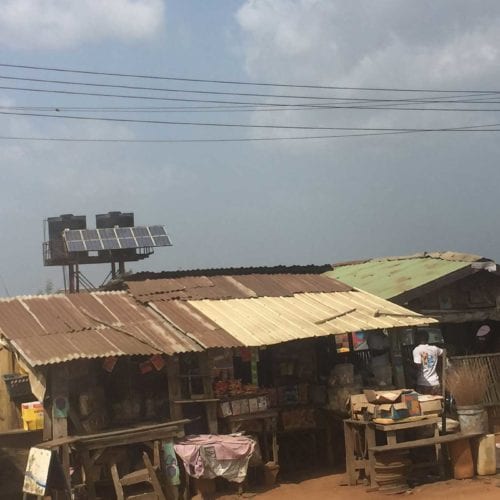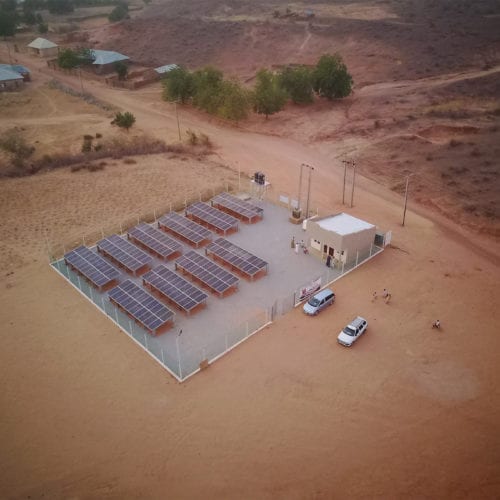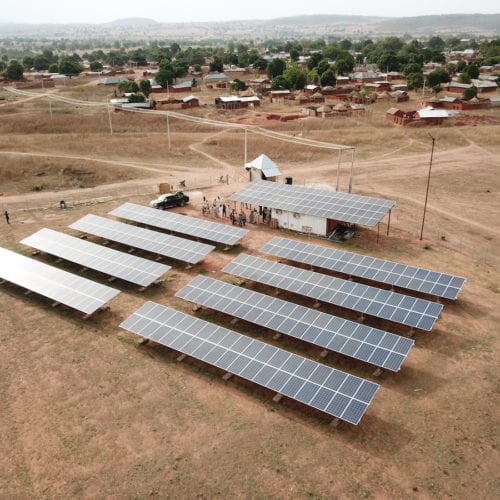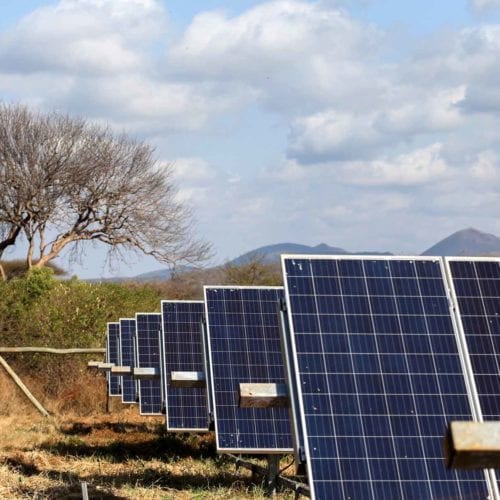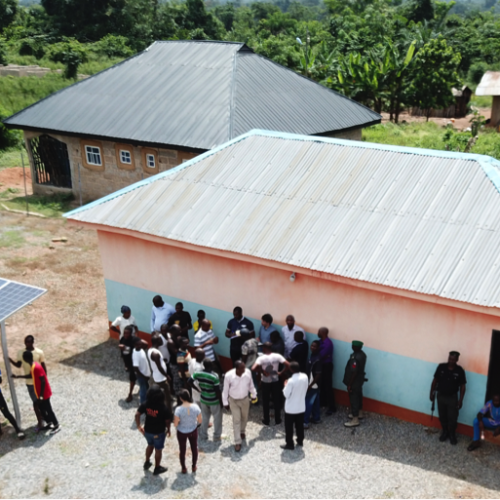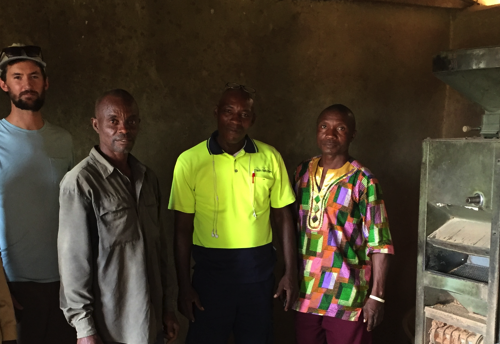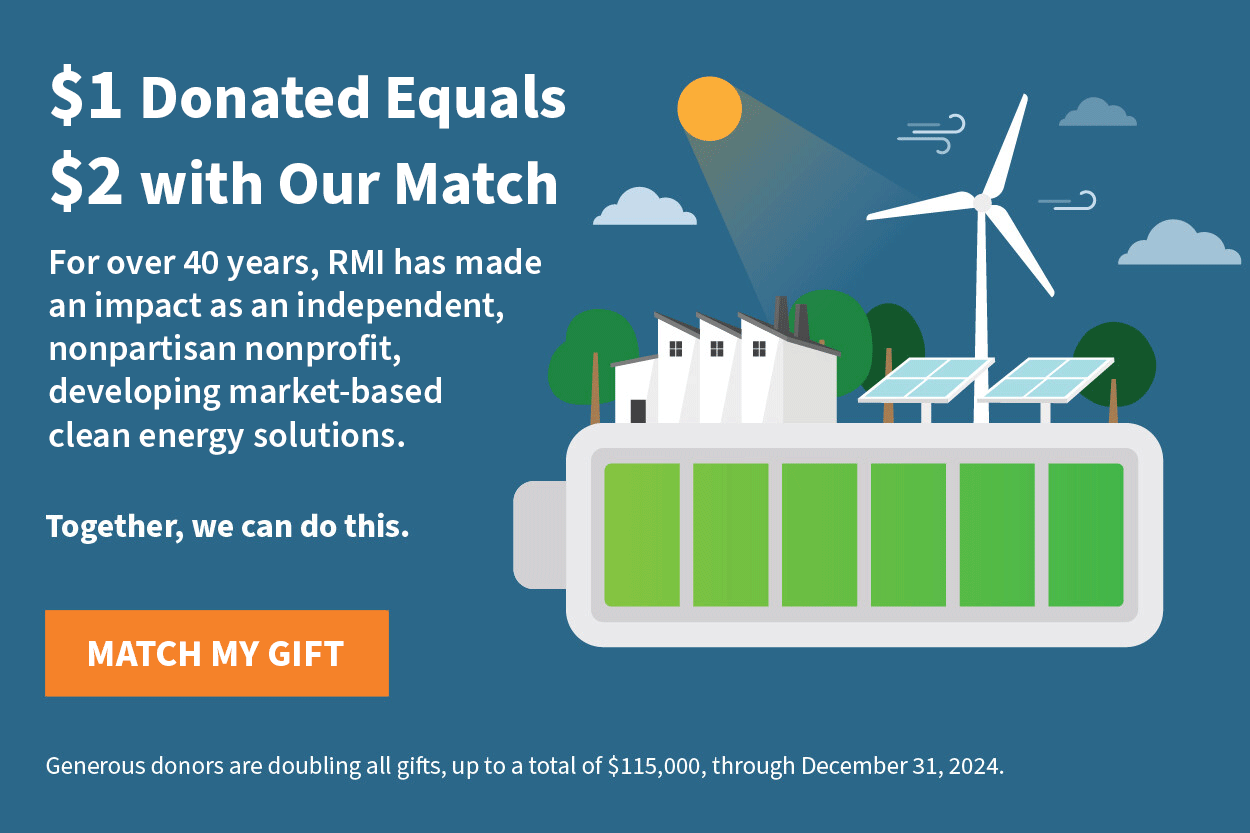In February 2020, Nigeria’s first commercial undergrid minigrid came online in Mokoloki, Ogun State, Nigeria. Despite a tumultuous year that included the global COVID-19 pandemic, the undergrid minigrid project remained financially sound. New customers have been acquired steadily, individual demand for electricity is growing, and the minigrid is attracting new businesses to Mokoloki.


Project Resources
A new undergrid minigrid pilot in Mokoloki, which provides stable electricity through a new, sustainable economic and regulatory model, shows how utilities, private developers, and communities can work together for mutual benefit.
The Mokoloki project demonstrates a financially viable business model that could provide electricity access to millions living in underserved rural communities throughout the country.
The solar hybrid project in Mokoloki community is Nigeria’s first rural commercial undergrid minigrid, coming online in February 2020. Through an innovative partnership between Ibadan Electricity Distribution Company (IBEDC), Nayo Tropical Technology (Nayo Tech), and Mokoloki community—with advisory support from Rocky Mountain Institute (RMI)—this project demonstrates a path to collaboration.
The solar hybrid project in Mokoloki community is Nigeria’s first rural commercial undergrid minigrid, which came online in February 2020. Through an innovative partnership between Ibadan Electricity Distribution Company (IBEDC), Nayo Tropical Technology (Nayo Tech), and Mokoloki community—with advisory support from Rocky Mountain Institute (RMI)—this project demonstrates a path to collaboration. Early evidence indicates the project will improve electricity service, support community development, and reduce utility losses.
While the Mokoloki minigrid is an important proof-of-concept that the undergrid model can be achieved, it represents more than that. It also proves that the undergrid model is technically and economically feasible.
Video: Nigeria’s First Commercial Undergrid Minigrid
Video: Nigeria’s First Commercial Undergrid Minigrid
Rocky Mountain Institute, Ibadan Electricity Electric Distribution Company, and Nayo Topical Technology, with support from the Nigerian Rural Electrification Agency (REA), joined forces to accelerate the commercial deployment of undergrid minigrid technology in the Nigerian energy sector. The Mokoloki community project demonstrates a financially viable business model that could provide electricity access to millions living in underserved rural communities throughout the country.
Mokoloki’s minigrid:
- Creates cost-savings for the utility, which previously registered aggregate technical and commercial losses of up to 70 percent in Mokoloki;
- Opened a new revenue stream and minigrid market segment for the developer;
- Avoided about 15,000 kg of CO2 emissions its first three months of operation; and
- Reduced customer electricity costs by ₦20/kWh ($0.06/kWh)
Project participants believe that this model can be replicated and scaled to help serve millions of Nigerians living in underserved communities.
Resources
Improving the Economics and Reliability of Rural Electricity Service with Undergrid Minigrids
Collaborative Business Models for Developing Minigrids Under the Grid
How Community-Led Minigrid Projects Can Strengthen Rural Electrification in Africa
How Four Simple and Collaborative Business Models Can Unlock Nigeria’s $1 Billion Undergrid Minigrid Market
Growing the Minigrid Market
Using Undergrid Minigrids to Drive Development in Thousands of Sub-Saharan African Communities
Minigrids can be the least-cost option for electricity access for millions of people who lack access to reliable electricity, however market penetration remains low.

